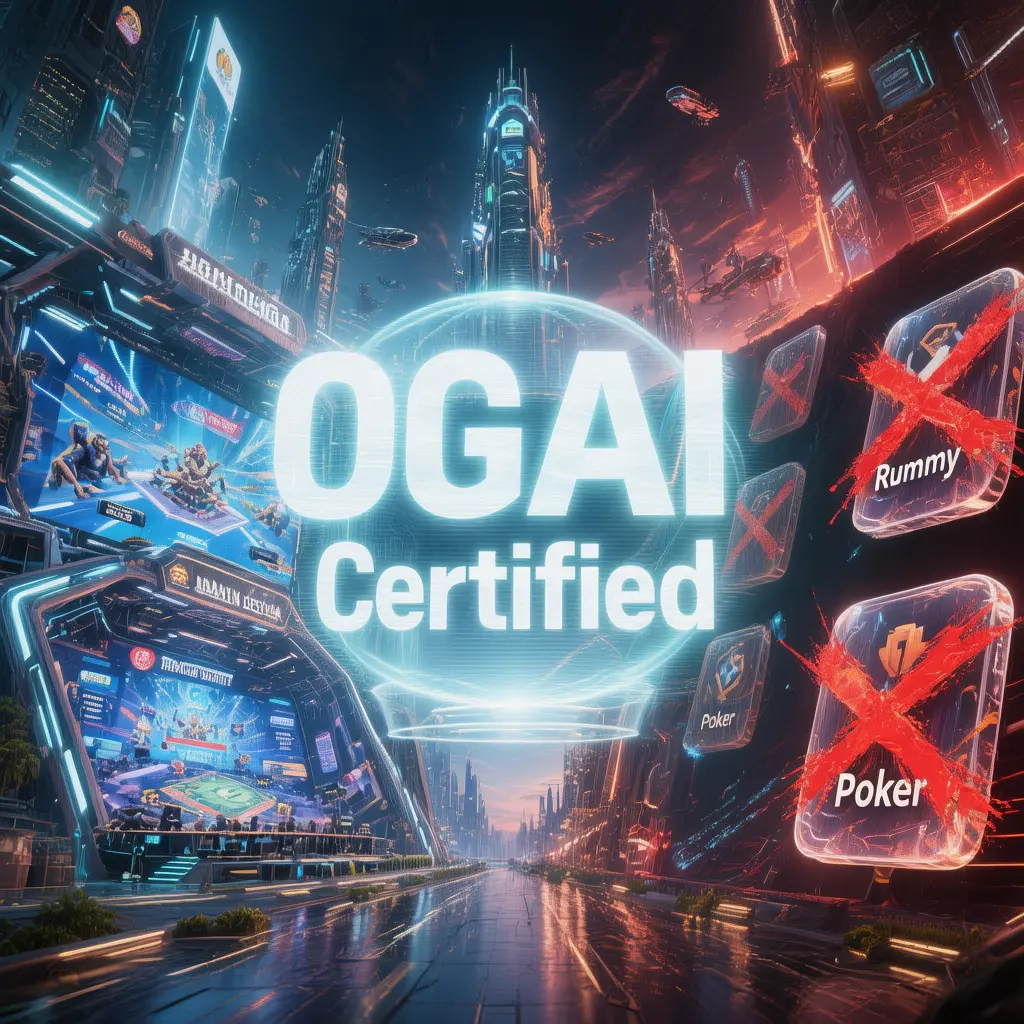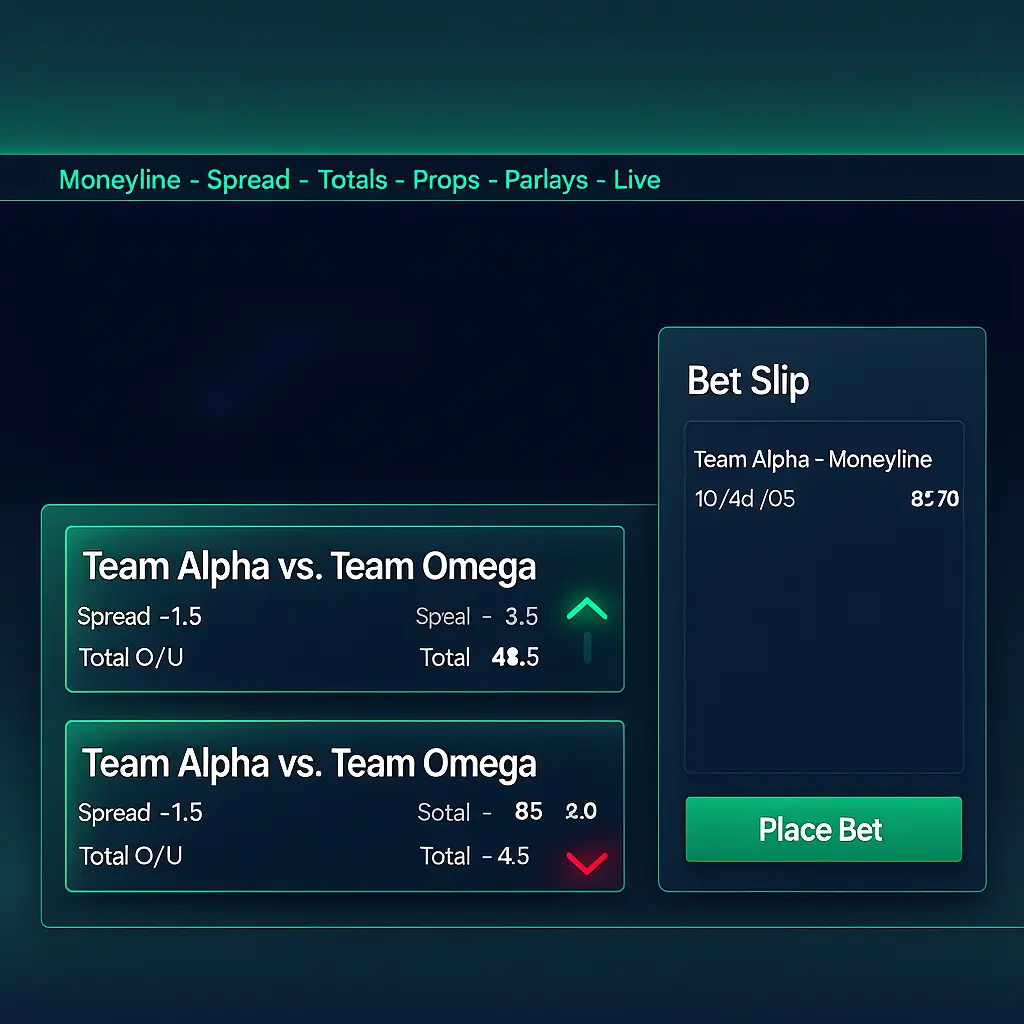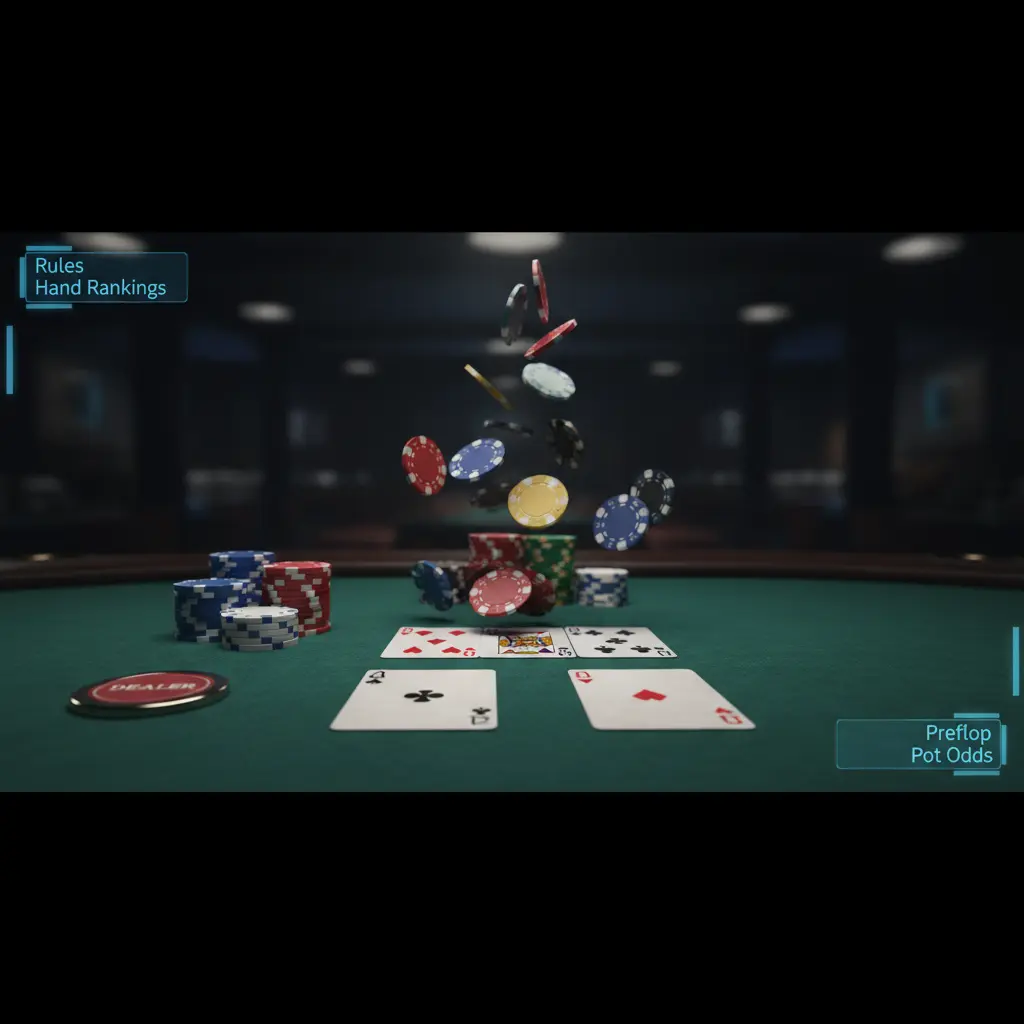Welcome to your essential guide for navigating India’s new gaming landscape. As of October 2025, the rules have completely changed. This article provides a simple, detailed breakdown of the India online gaming act 2025 explained for affiliates and operators.
We will cover exactly what you can and cannot publish to stay compliant. The new law, known as the Public Gambling (Repeal) and Prevention of Online Gaming Act (PROG Act) 2025, has banned all forms of online money games.
This means if you are an affiliate or an operator, understanding these new rules is critical to avoid severe penalties, including hefty fines and jail time. This guide is your first step toward full compliance.
Why October 2025 Matters for Gaming Publishers
October 2025 is a landmark month. The PROG Act officially came into effect on October 1st, and the Ministry of Electronics and Information Technology (Meity) released new draft rules on October 2nd for public feedback. These India online gaming rules October 2025 have created a new reality. The biggest change? A complete ban on any game involving deposits for the purpose of winning a prize in money or money’s worth. The stakes are incredibly high, with penalties reaching up to ₹10 million and 3 years in prison. For publishers, this means your old content strategy is now obsolete and potentially illegal.
Who This Guide Serves: Affiliates vs Operators
This guide is for everyone in the iGaming ecosystem, but it clearly separates the duties of operators (the companies running the games) and affiliates (the publishers, influencers, and marketers who promote them). While operators face the primary burden of registration and compliance, affiliates are also directly in the line of fire for promoting illegal activities. We will provide a clear PROG Act 2025 summary and explain your specific responsibilities to ensure you operate safely and legally.
Understanding the PROG Act 2025 Framework
The new India online gaming law 2025 is built on a simple but strict classification system. It’s crucial to understand these categories because what you can publish depends entirely on them. The law aims to create a clear line between permitted and banned gaming activities, ending the long-standing legal confusion. This framework is the foundation of the entire India online gaming act 2025 explained for affiliates and operators.
The Three-Category Classification System
The PROG Act 2025 divides all online games into three distinct types:
- Online Money Games (OMG): Completely banned.
- E-sports: Permitted, with regulations.
- Online Social Games (OSG): Permitted, with regulations.
This system replaces the old, confusing “skill vs chance” debate that was often decided by the Supreme Court. Now, the law is direct: if a game involves paying to win money, it’s an OMG and it’s illegal.
What Constitutes Online Money Gaming (Banned)
Definition: Online Money Game (OMG)
An OMG is any online game where a player deposits money or virtual assets with the expectation of winning a prize in money or money’s worth. This includes all previous forms of real-money gaming (RMG), regardless of whether they were based on skill or chance.
The ban on OMG is total and effective from October 1, 2025. This is the most critical part of the new real-money gaming rules India. The law also has an “extraterritorial application,” meaning even offshore operators targeting Indian users can be prosecuted. Government bodies can issue blocking orders to internet service providers to block access to these illegal sites.
E-Sports and Social Games (Permitted Categories)
E-sports (professional or amateur competitive video gaming) and Online Social Games (games played for social interaction without cash prizes) are permitted. However, operators of these games must still register with the new authority and follow strict rules on advertising and user safety. For affiliates, this is your new focus area. Content must now shift to promoting these legal forms of gaming.
Central vs State Jurisdiction Conflicts
The PROG Act is a central law, meaning it applies to the whole of India. It aims to create a single, unified legal framework. However, states still have powers to regulate betting and gambling. While the central law will likely take precedence, publishers should still be aware of potential state vs central conflicts and any stricter rules in specific states.
OGAI Certification and Registration Requirements
To oversee the new regulations, the government has established the Online Gaming Authority of India (OGAI). Think of OGAI as the new police for the online gaming world. Understanding its role is key to your India gaming compliance checklist. Both operators and, indirectly, affiliates must be aware of the OGAI certification process.
Mandatory Registration: Who Must Register with OGAI
Registration with OGAI is mandatory for all operators of permitted games (E-sports and Online Social Games) that want to operate legally in India. This includes both Indian and foreign companies targeting Indian players. The goal of OGAI certification is to ensure that only verified and compliant games are available to the public. This is a core part of the India online gaming act explained.
The 90-Day Application and Approval Process
Operators had a 90-day window starting from the law’s implementation to apply for registration. OGAI will review each application to ensure the operator has a proper grievance redressal system, follows user verification norms, and maintains proper record keeping. The process is designed to be thorough to weed out non-compliant players from the market.
Certificate Validity and Renewal (5-Year Cycle)
An OGAI registration certificate is valid for five years. After this period, operators must apply for renewal. This ensures that companies remain compliant over the long term and adapt to any new rules. OGAI has the power to suspend or cancel a certificate if an operator violates the law.
Do Affiliates Need OGAI Registration?
No, affiliates do not need to register directly with OGAI. However, you have a responsibility (due diligence) to only promote or publish content about operators who ARE registered and certified by OGAI. Promoting an unregistered E-sports or social gaming platform could be seen as facilitating an illegal activity, putting you at risk. Always verify an operator’s OGAI certification status before partnering with them.
Skill vs Chance: Legal Definitions That Matter
For years, the legality of online gaming in India hinged on the “skill vs chance” debate. The Supreme Court had established a “preponderance of skill” test, which made some games legal. However, the PROG Act 2025 has completely changed this. Understanding this shift is vital to know what is legal online gaming India today.
The Supreme Court’s “Preponderance of Skill” Test
Previously, if a game was predominantly a game of skill rather than chance, it was considered legal. This was based on several Supreme Court rulings. This test was the reason why certain real-money games were allowed to operate for so long.
Games Previously Recognized as Skill-Based
Under the old system, games like online rummy, online poker, and fantasy sports were legally classified as games of skill in most states. This allowed the industry to flourish. Many affiliates built their entire business around promoting these games.
Why Skill-Based RMG Is Now Banned (2025 Shift)
Major Legal Shift: The End of the Skill vs. Chance Era
The PROG Act 2025 makes the skill vs. chance distinction irrelevant for money games. If a game requires a deposit to win a cash prize, it is now banned, regardless of the skill involved. This is the most significant change in the India online gaming law 2025.
So, to answer the common questions: is online rummy legal in India? No, not if it involves real money. Is online poker legal in India? No, not for real money stakes. The debate between esports vs RMG India is now settled: only E-sports (without direct cash-for-prizes wagering) and social games are permitted.
What Affiliates Can Legally Publish in October 2025
This is the most important section for content creators. With the old business model gone, you need to know what affiliates can publish in India to stay safe. The line between legal and illegal content is now very sharp. Your focus must shift from promotion to information and from RMG to E-sports and social gaming. Following rules for compliant advertising India is no longer optional.
Permitted: Educational Content About E-Sports and Social Games
You CAN and SHOULD create content about the permitted categories. This includes:
- Reviews of OGAI-certified E-sports and social gaming platforms.
- “How-to-play” guides for popular E-sports titles.
- News and updates about the E-sports industry in India.
- Profiles of professional E-sports players and teams.
- Lists of the best free-to-play social games.
This is a key part of learning how to advertise gaming in India legally now. Your role is to educate the audience about safe and legal gaming options.
Prohibited: Any RMG Promotion or Facilitation
You CANNOT publish any content that promotes, encourages, or provides links to banned Online Money Games. This includes:
- Writing reviews of banned rummy or poker sites.
- Publishing bonus codes or promotional offers for OMGs.
- Placing banner ads for any real-money gaming operator.
- Linking to websites or apps that offer OMGs.
- Creating content that explains how to access banned sites (e.g., using a VPN).
Doing any of the above would be considered advertising an illegal activity and could lead to severe penalties.
The Gray Area: Historical or News-Based Gaming Content
What about old articles about rummy or poker? It’s a gray area. While publishing news about the ban itself is fine, keeping old promotional articles live could be risky. The best practice is to either delete them or update them with a clear disclaimer stating that these games are now illegal in India under the PROG Act 2025. This shows due diligence.
Safe Harbor Protections for Affiliate Publishers
The law provides “safe harbor” protection for intermediaries (like publishers) who unknowingly host illegal content. However, to qualify for this protection, you must prove you have performed due diligence and that you will promptly remove any illegal content when notified by the government. This means you can’t just claim ignorance; you must actively ensure your site is clean.
Affiliate Liability vs Operator Liability
Operators face the harshest penalties. However, the law also includes penalties for anyone who “advertises” or “promotes” illegal online gaming. This directly targets affiliates. While an operator might get 3 years in prison, an affiliate could face up to 2 years and a significant fine. The risk is real.
ASCI Guidelines for Gaming Content
Even for legal E-sports and social games, advertising is tightly controlled. The Advertising Standards Council of India (ASCI) has specific guidelines that all publishers, including affiliates and influencers, must follow. These ASCI guidelines work alongside the PROG Act to ensure responsible advertising.
Mandatory Disclosures for Gaming Advertisements
All gaming advertisements, including affiliate articles and social media posts, must include a clear disclaimer. For social games that may have in-app purchases (but are not OMGs), the disclosure should state: “This game involves an element of financial risk and may be addictive. Please play responsibly.” A clear ads disclosure is non-negotiable.
Age Restrictions and Verification Requirements
All gaming content must be targeted at an audience aged 18 and over. Your website and content should have clear age gating messages. You cannot show people who appear to be under 18 playing these games. This is a strict requirement for compliant advertising India.
Influencer Marketing and Sponsored Content Rules
If you are an influencer, any sponsored post must be clearly labeled as an #ad, #sponsored, or #promotion. The influencer ads rules are very strict. You must also follow all the other ASCI guidelines, including the disclaimer and age restrictions. Hiding the fact that a post is an advertisement is a violation.
ASCI-Federation Partnership and Monitoring Cell
In January 2025, ASCI partnered with gaming federations to create a special monitoring cell. This group actively scans the internet for non-compliant ads. They are looking for violations of the ASCI guidelines and will report them to the authorities. This means the chances of getting caught are higher than ever.
Payment Processing and Financial Compliance
The government is cutting off the money supply to illegal gaming. The Reserve Bank of India (RBI) has issued strict guidelines to banks and payment companies, which directly impacts how the gaming industry operates. This is another critical piece of the India online gaming act 2025 explained for affiliates and operators.
RBI Prohibitions on Payment Facilitation for OMG
The RBI has directed all regulated entities, including banks, payment aggregator services, and wallet providers like UPI and Netbanking, to block all transactions related to banned Online Money Games. Any financial institution that processes payments for an illegal gaming site can face severe penalties from the RBI.
KYC Requirements for Legal Gaming Platforms
For legal E-sports and social gaming platforms that have in-app purchases, strict Know Your Customer (KYC) norms are in place. Operators must verify the identity of their users, often using official documents like a PAN card or Aadhaar. This is done to prevent fraud and ensure users are over 18.
Affiliate Restrictions on Payment Link Promotion
As an affiliate, you must never promote or share payment links related to any banned game. Since payment gateways are blocking these transactions anyway, any attempt to facilitate them could be seen as a direct attempt to break the law. Your content should not discuss deposit limits or payment methods for illegal games.
State-Wise Restrictions and Geo-Fencing Requirements
While the PROG Act is a central law, India’s states still have a say. This creates a complex environment where you need to be aware of both central and state-level rules. The India online gaming rules October 2025 require operators to be mindful of this.
Central Law vs State Gaming Regulations
The central PROG Act provides a baseline for the entire country. However, some states, known as “blackout states,” have historically had even stricter laws, banning all forms of online gaming, sometimes even free-to-play ones. The relationship between state vs central law is still being tested in courts, but for now, operators must comply with the strictest applicable law in each state.
Geo-Fencing and IP Blocking Mandates
To comply with state-specific rules, operators are required to use technology like geo-fencing and IP blocking. This means they must prevent users from states where their games are banned from accessing their platform. For example, if a state bans a specific type of social game, the operator must block users from that state.
Content Restrictions for State-Specific Publishing
As an affiliate, this means you should also be careful. If you are running targeted ad campaigns, you should exclude blackout states. It’s a good practice to add a disclaimer to your content, such as, “Availability of these games may vary by state.” This protects you and provides clear information to your audience.
App Store Policies: Google Play vs Apple App Store
App stores are the primary gateway for users to access mobile games. Their policies are a crucial part of the compliance puzzle. The app store policy of both Google and Apple has a huge impact on what games are available.
Google Play Store’s Limited RMG Pilot (Pre-Ban Context)
Before the PROG Act, the Google Play store ran a limited pilot program allowing certain real-money games on its platform. However, with the new law banning all OMGs, this pilot is now irrelevant. Google is expected to enforce the ban strictly and remove any non-compliant apps.
Apple App Store Enforcement Challenges Post-PROG Act
The Apple App Store has historically been more permissive. However, they are also bound by Indian law. While some illegal apps might still be found on the store in the short term, Apple is required to take them down when notified by the government. Relying on the Apple App Store to find illegal games is a risky and short-sighted strategy.
Can Affiliates Review or List Gaming Apps?
Yes, but only for legal, OGAI-certified E-sports and social gaming apps. When you review or list an app, you are essentially advertising it. Therefore, you must ensure the app is compliant with the PROG Act. Linking to an illegal app on any app store is a direct violation of the law.
Grievance Redressal and Due Diligence Obligations
The new law places a strong emphasis on user protection. This includes a robust system for handling user complaints and a requirement for companies to be diligent about the content on their platforms. This is a key part of the India online gaming draft rules 2025.
Three-Tier Grievance Redressal System
The rules propose a three-level system for dispute resolution:
- Level 1: The operator’s own Grievance Officer.
- Level 2: A self-regulatory organization (SRO) that the operator is a member of.
- Level 3: An oversight committee established by Meity.
This ensures that users have multiple avenues to get their problems solved.
Officer Appointments and Residency Requirements
Every operator must appoint three key officers who are residents of India: a Chief Compliance Officer, a Nodal Contact Person (for law enforcement coordination), and a Grievance Officer. This ensures there are real people on the ground who can be held accountable.
Affiliate Due Diligence Best Practices
As an affiliate, you must also practice due diligence. This means:
- Verifying the OGAI certification of any operator you work with.
- Regularly checking your website for any old or illegal content.
- Having a simple contact form or email where users or authorities can report issues.
- Keeping records of your compliance checks (record keeping).
This shows you are acting in good faith and helps you qualify for safe harbor protection.
Penalties and Enforcement Mechanisms
The PROG Act 2025 has serious teeth. The penalties are designed to be a strong deterrent to anyone considering breaking the law. Understanding these consequences is essential for both operators and affiliates.
Criminal Penalties: Imprisonment and Fines
The penalties for operating, advertising, or facilitating illegal Online Money Games are severe:
For Operators: Up to 3 years imprisonment and a fine of up to ₹10 million.
For Advertisers/Affiliates: Up to 2 years imprisonment and a fine of up to ₹5 million.
For Players: A fine of up to ₹10,000.
Affiliate-Specific Advertising Penalties (Up to 2 Years)
It’s important to highlight that the law has specific penalties for advertisers, which includes affiliates. This is a major change from previous laws, where affiliates were often overlooked. The government is now targeting the entire ecosystem, not just the operators.
Non-Bailable Offense Classifications
Operating an illegal gaming business is classified as a cognizable and non-bailable offense. This means the police can make an arrest without a warrant, and getting bail will be very difficult. This shows how seriously the government is taking this issue.
Government Blocking Powers and Appeals Process
Meity has the power to issue blocking orders to take down websites, apps, and social media accounts that are promoting illegal gaming. While there is an appeals process, getting a blocking order reversed will be challenging if you are clearly in violation of the law.
October 2025 Draft Rules: Key Updates for Publishers
The regulatory landscape is still evolving. The India online gaming draft rules 2025, released on October 2nd, are currently open for public consultation until October 31st. These rules provide the specific details for implementing the PROG Act.
October 2 Draft Rules Release and Public Consultation
The release of these draft rules by Meity is a critical step. They cover the exact procedures for OGAI registration, the functions of the grievance redressal system, and the technical requirements for operators. Publishers should review these rules to understand the fine print of compliance.
Supreme Court Challenges and Constitutional Questions
Several gaming companies have challenged the constitutionality of the PROG Act in the Supreme Court. They argue that the complete ban on skill-based games is unfair. The outcome of these legal challenges could potentially change some aspects of the law in the future, but for now, the ban is in full effect.
Timeline: When Will Final Rules Take Effect?
After the public consultation period ends on October 31, 2025, Meity will review the feedback and release the final version of the rules. This is expected to happen by the end of 2025 or early 2026. Until then, the PROG Act and the draft rules are the guiding documents for compliance.
India Gaming Compliance Checklist for Affiliates and Operators
To make things simple, here is an actionable checklist. This is a crucial tool in our guide on the India online gaming act 2025 explained for affiliates and operators.
10-Point Compliance Checklist for Operators
- Cease all Online Money Game (OMG) operations immediately.
- Apply for OGAI certification for your E-sports or Social Gaming platforms within the 90-day window.
- Appoint a resident Grievance Officer, Nodal Officer, and Chief Compliance Officer.
- Implement a robust KYC and age verification (18+) system.
- Integrate geo-fencing to block access from “blackout states.”
- Ensure all advertising complies with ASCI guidelines.
- Set up a three-tier grievance redressal mechanism.
- Ensure payment systems (UPI, Netbanking) are not used for any banned activities.
- Maintain all necessary records for due diligence and audits.
- Implement data localization and store user data as per Indian law.
8-Point Compliance Checklist for Affiliates
- Audit your entire website and remove all content promoting OMGs (Rummy, Poker for money, etc.).
- Stop all advertising campaigns that link to or mention banned games.
- Verify that any E-sports or social gaming operator you promote has a valid OGAI certification.
- Update your content to focus exclusively on legal E-sports and social games.
- Include mandatory ads disclosure and age warnings (18+) on all gaming content.
- Ensure your influencer marketing follows ASCI’s rules for sponsored content.
- Do not publish content that explains how to bypass the law (e.g., using VPNs).
- Establish a clear contact method on your site for takedown requests to maintain safe harbor status.
Frequently Asked Questions (FAQs)
Q1. Is online rummy legal in India after the PROG Act 2025?
No. If it involves depositing money to win a cash prize, online rummy is now considered an Online Money Game (OMG) and is illegal nationwide.
Q2. Is online poker legal in India in October 2025?
No. Just like rummy, real-money online poker is banned under the new law. Free-to-play poker on social gaming platforms is permitted.
Q3. How can I advertise gaming in India legally?
You can only advertise OGAI-certified E-sports and Online Social Games. All ads must follow strict ASCI guidelines, including disclaimers and age-gating (18+).
Q4.What is OGAI certification?
It is a mandatory registration certificate from the Online Gaming Authority of India (OGAI) that all legal gaming operators (E-sports, Social Games) must obtain to operate in India.
Q5. What is the main point of the PROG Act 2025 summary?
The key takeaway is the complete ban on all Online Money Games (any game involving a deposit to win money), replacing the old “skill vs. chance” legal framework.
Q6. Do I need an India gaming compliance checklist as an affiliate?
Yes, absolutely. While operators have more responsibilities, affiliates face severe penalties for advertising illegal games. Following a compliance checklist is crucial for your safety.
Q7. What are the penalties for affiliates promoting banned games?
Affiliates can face up to 2 years in prison and a fine of up to ₹5 million for advertising or promoting illegal Online Money Games.
Q8. What is legal online gaming in India now?
Legal online gaming is limited to two categories: E-sports and Online Social Games. Both must be registered with OGAI and cannot involve wagering money to win cash prizes.
Conclusion: The Road Ahead for Indian Gaming
The Indian online gaming industry has entered a new, highly regulated era. The India online gaming act 2025 explained for affiliates and operators shows a clear paradigm shift: the era of real-money skill gaming is over, replaced by a strict ban on all OMGs. For publishers and operators, the path forward is narrow but clear. The focus must be on compliance, transparency, and promoting the legal categories of E-sports and social gaming.
The Road Ahead: Monitoring Regulatory Changes
This is a dynamic situation. The final rules from Meity are still pending, and Supreme Court challenges are ongoing. It is essential to stay informed. The key to survival and success in this new market is not to find loopholes, but to embrace regulation and build a sustainable business around what is clearly permitted.
Resources for Staying Updated
To stay compliant, regularly check for updates from official sources like the Meity website and the newly formed OGAI portal. For a continuous PROG Act 2025 summary and analysis, keep following Anilgnews. We are committed to providing you with clear, reliable information to help you navigate these changes safely.
With over 20 years of experience in the iGaming industry, Anilgnews provides expert analysis and in-depth content to help players and operators navigate the complexities of online gambling regulation.




